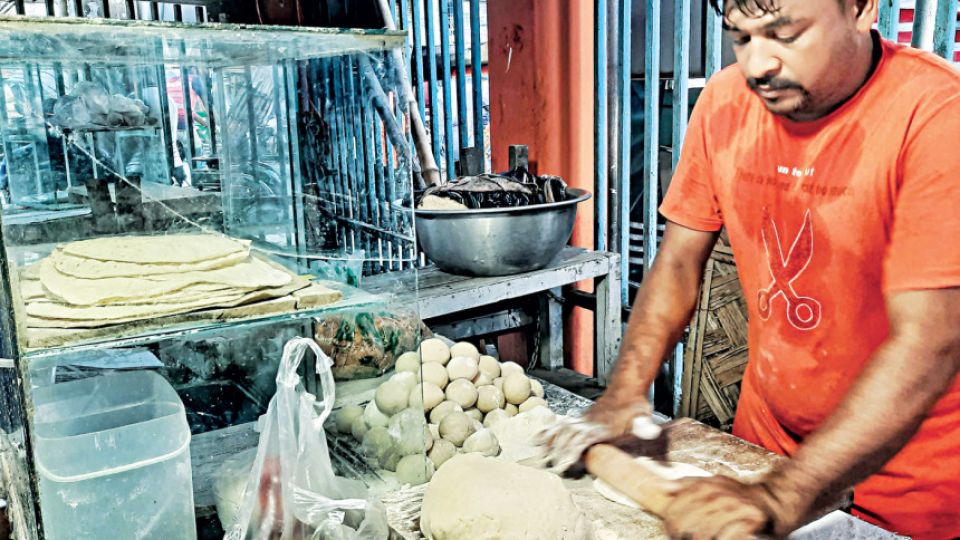October 6, 2022
DHAKA – Bangladeshi consumers are paying the highest ever prices to buy wheat flour as supply and private stocks of the grain slumped in the domestic market in the wake of a dip in imports since the beginning of the Russia-Ukraine war.
Retail prices of wheat flour, which is consumed by many as flatbread or “ruti” in Bangla, hit Tk 50.10 per kilogramme in Dhaka in September this year, the highest since July 2008, according to data from the Food and Agriculture Organization.
September’s price was 62 per cent higher than what it was a year ago.
On October 4, retailers sold loose wheat flour at Tk 54 to Tk 55 per kilogramme in Dhaka, which was 10 per cent higher than that a month ago and 62 per cent above the prices a year ago, shows market prices data compiled by the Trading Corporation of Bangladesh.
Importers and processors said the prices of wheat, used extensively by biscuit and bakery makers, soared driven by increased prices in the international market, rising cost of the US dollar and depleting stocks.
The situation turned worse after India, which became a major source of wheat for Bangladesh’s private sector since 2020, restricted the export of grain to contain prices in its local market in May 2022.
The Indian ban came after imports from other sources, Russia and Ukraine, came to a halt in the wake of the war in February.
Bangladesh’s wheat imports fell to its lowest in six years in fiscal year 2021-22.
Public and private imports fell 25 per cent year-on-year to 40 lakh tonnes in fiscal year 2021-22, according to food ministry data.
And until August 25 of fiscal year 2022-23, which began from the first day of July, the total wheat import stood at 1.62 lakh tonnes, down 35 per cent from 2.48 lakh tonnes in the same period a year ago.
“There is an inadequate supply of wheat in the market. But when we get supply, prices are high,” said Deluar Hossain, general secretary of the Ata (flour) and Maida Mill Owners Association in Naranyanganj, a hub for wheat flour.
Abul Bashar Chowdhury, chairman of Chattogram-based commodity importer BSM Group, said the arrival of wheat from India stopped after May.
Besides, prices went up internationally after the ban by the neighbouring country. This took place after imports from Ukraine and Russia stopped for war, he said.
Bangladesh depends on the import of over three-fourths of its annual requirement of wheat because of scanty domestic production.
“Stock of wheat, especially at the private sector, is now at a historically low level in the country,” he said, adding that wheat imported from Ukraine and Russia would arrive in Bangladesh by October 15.
“This will increase availability,” he said, adding that six to seven ships with around 5 lakh tonnes of wheat are on the way from the region.
Taslim Shahriar, senior assistant general manager of the Meghna Group of Industries, another importer and processor, said India, Russia, and Ukraine were the main sources of wheat having low protein content and comparatively lower prices than maida or premium quality flour that were used to make paratha.
He said Soft Red Winter (SRW) wheat used to make flour for ruti, is still dearer in the international market. “We are also facing problems in opening letters of credit for import commodities,” he said.



